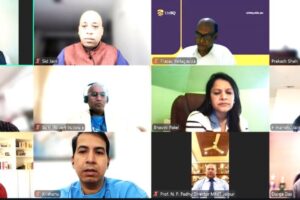Longevity expert Andrew Markell challenges the common emphasis on resilience, suggesting that desire rather than resilience is key to survival and growth. Traditional views celebrate resilience as the ability to bounce back to a previous state after adversity, but Markell argues this approach is limited. Instead, evolution and endurance arise from transformation—becoming something new rather than returning to the old baseline.
He explains that resilience focuses on homeostasis, maintaining stability, while real longevity comes from embracing change and evolving through challenges and disruptions. In this dynamic process, desire sparks continuous growth beyond mere recovery.
Markell, a trauma specialist and co-founder of The Dawn Collective, teaches people—from special forces members to CEOs—how to maintain clarity and adaptiveness amidst chaos. This mindset favors active evolution over passively enduring hardships.
Drawing parallels, Angus Fletcher’s recent essay highlights how Steve Jobs’s teenage encounter with Shakespeare’s King Lear shaped his innovative mindset. Jobs’s success came not from refining conventions but from amplifying individual originality and breaking traditional patterns—much like Lear’s wild originality in literature.
Additionally, patterns of quality and impact follow power laws in nature and society. These recurring patterns serve as guides to identify what leads to success, excellence, and meaningful influence over time.
Together, these ideas suggest that long-term success and longevity emerge from a blend of ambition, continuous transformation, and learning to navigate change creatively rather than merely surviving it.










